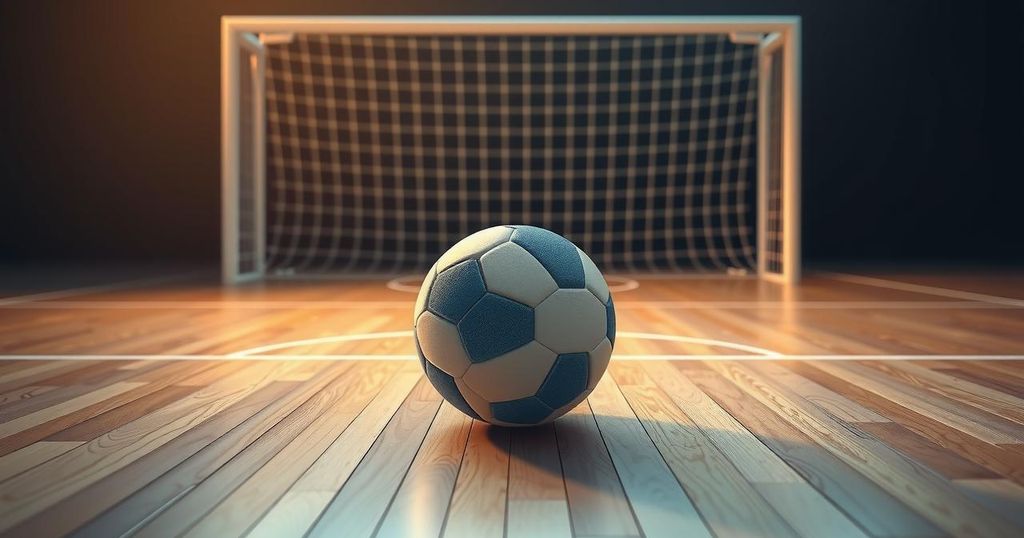Kazakhstan: From Football Underdog to Futsal Powerhouse

Kazakhstan is a rising force in futsal, currently ranked seventh in the world, while its traditional football team ranks 120th. Investment and Brazilian expertise have significantly contributed to this success. The country faces challenges with women’s football performances and infrastructure, but it is fostering local talent and gains recognition in futsal through club success and international competition.
Kazakhstan faces World Cup champions France in a qualifying match for the 2022 tournament; however, they would be the underdogs in futsal. With substantial private investment and Brazilian expertise, Kazakhstan has become a formidable force in five-a-side futsal, holding a world ranking of seventh, outperforming France by 16 places. In contrast, Kazakhstan’s 11-a-side football team ranks 120th globally, and the women’s team has faced challenges, including a 12-0 loss to France in Euro 2022 qualifying.
The 2000 Futsal World Cup marked Kazakhstan’s first significant presence in the sport, although they suffered a heavy defeat to Brazil and exited early. Yermek Tursunov, a former player, cited political interference during preparations, which compromised the team’s ability to perform. Political upheavals influenced the football federation’s direction, with former chief Rakhat Aliyev exiled after disputes with the ruling family. He later died in prison while facing serious charges.
Currently, Kazakhstan’s futsal success is bolstered by Brazilian nationals, including coach Ricardo Kaka and key players like goalkeeper Leo Higuita. Their talent has attracted attention and investment, significantly contributing to the development of local players. Businessman Kairat Orazbekov plays a pivotal role in scouting Brazilian talent and facilitating innovative coaching methods.
Under Orazbekov’s vision, AFC Kairat, the nation’s leading futsal club, has consistently challenged top European teams, including Barcelona, by leveraging emerging local talents and building infrastructure to foster growth. Captain Dinmukhambet Suleimenov reflects on the progression of the sport in Kazakhstan, indicating a pivotal victory against Portugal as a turning point for national persistence and belief in their capabilities.
Investment in futsal infrastructure in schools contrasts sharply with the limited availability of professional football fields. Orazbekov highlights a stark disparity in facilities, noting that Kazakhstan lacks sufficient professional fields compared to countries like Slovakia and Belgium, which supports their futsal development. This investment and focus on futsal indicate a strategic direction in sports, prioritizing areas where Kazakhstan can gain prominence.
Kazakhstan is emerging as a major player in futsal, ranked seventh globally and benefiting from investments and Brazilian talent. Meanwhile, the country faces challenges in traditional football, highlighting the need for improved infrastructure. The success reflects a shift in focus towards sports where Kazakhstan can excel, driven by a commitment to developing local talent and competitive facilities. Overall, the duality of Kazakhstan’s football prowess across different formats underscores the importance of investment and strategic planning to nurture athletic potential.
Original Source: tribune.com.pk








